Navigating Uncertainty: The Rise of Product Operations Teams in 2023

In today’s fast-paced business world, product-led growth is the key to success. As product teams expand and features increase, customer feedback piles up, and the development and communication process becomes more complex, leading to poor product experience delivery. This is where the rise of Product Operations (ProdOps) creates a solution that allows companies to scale their products while maintaining organizational objectives, best practices, cross-team communication, and efficient product teams.
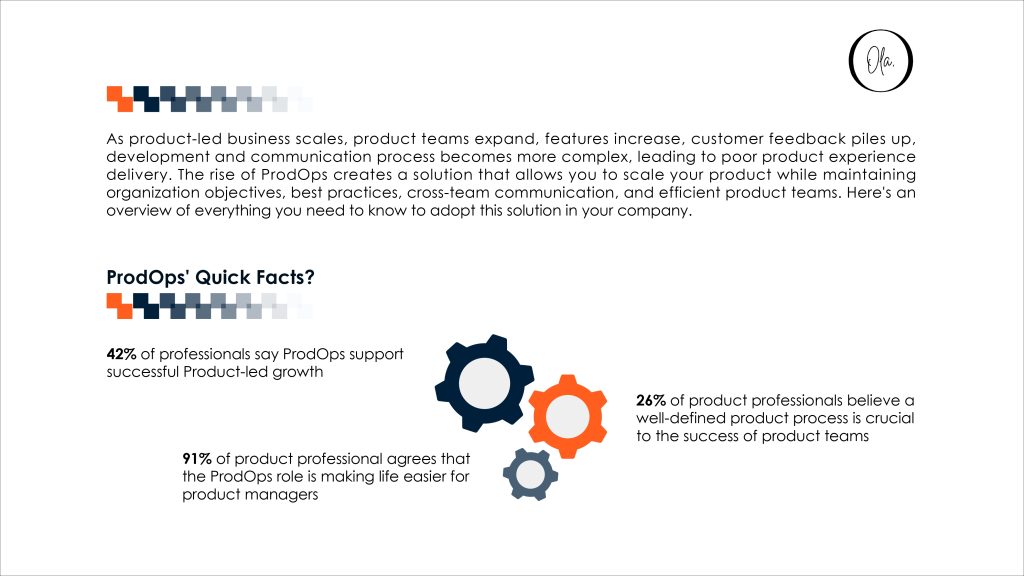
ProdOps' Quick Facts
ProdOps is becoming increasingly popular in the tech industry, with 42% of professionals saying that it supports successful product-led growth. Additionally, 26% of product professionals believe that a well-defined product process is crucial to the success of product teams. Furthermore, 91% of product professionals agree that the ProdOps role is making life easier for product managers.
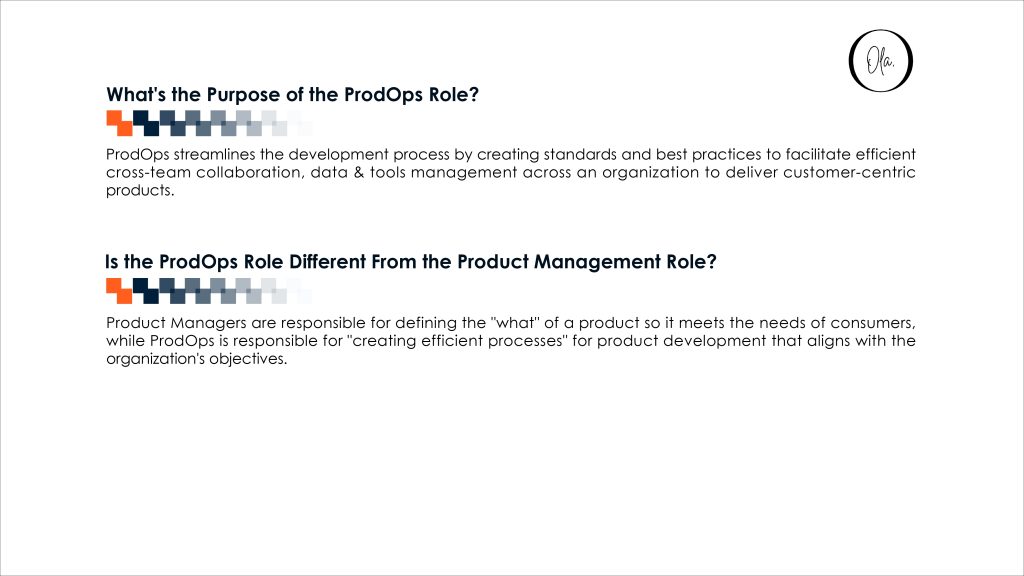
What's the Purpose of the ProdOps Role?
The primary purpose of ProdOps is to streamline the development process by creating standards and best practices that facilitate efficient cross-team collaboration, data and tools management across an organization, and ultimately deliver customer-centric products.
Is the ProdOps Role Different From the Product Management Role?
While Product Managers are responsible for defining the “what” of a product to meet the needs of consumers, ProdOps is responsible for “creating efficient processes” for product development that aligns with the organization’s objectives. ProdOps ensures that product development is done efficiently by managing cross-functional team communication, implementing best practices, and monitoring product performance.
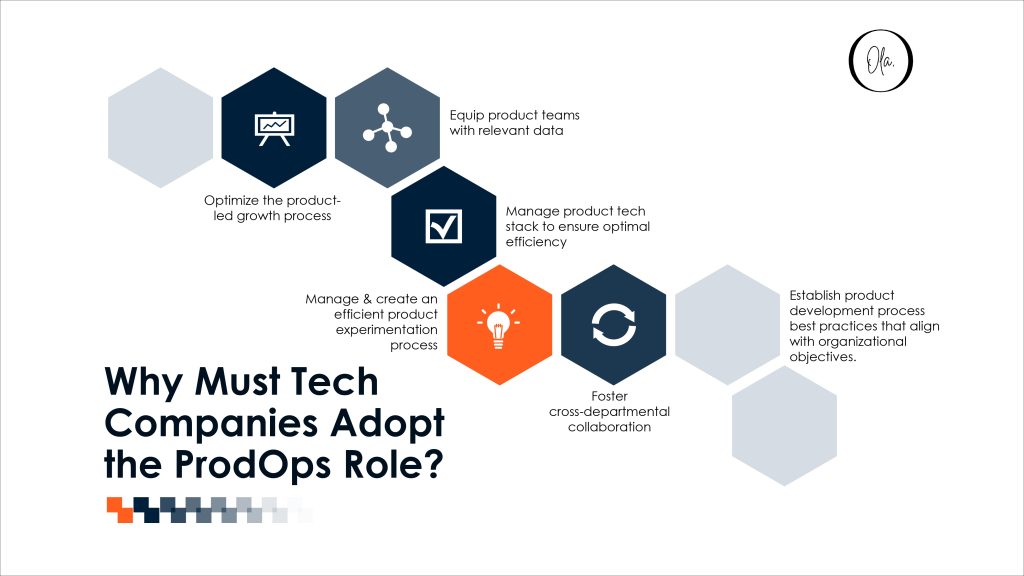
Why Must Tech Companies Adopt the ProdOps Role?
There are several reasons why tech companies should adopt the ProdOps role. Firstly, it optimizes the product-led growth process by providing relevant data to product teams to help them make informed decisions. Secondly, ProdOps manages the product tech stack to ensure optimal efficiency. Thirdly, ProdOps manages and creates an efficient product experimentation process, which helps the company identify and prioritize new product features. Fourthly, ProdOps fosters cross-departmental collaboration, which helps the product teams work seamlessly across different departments. Finally, ProdOps establishes product development process best practices that align with organizational objectives, which ensures that the company can efficiently scale its products.
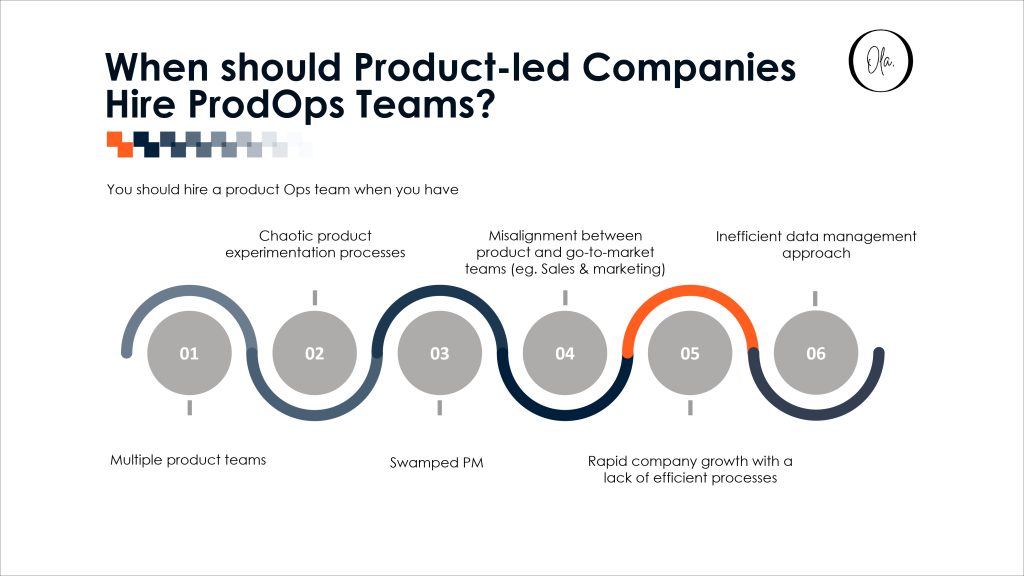
When Should Product-led Companies Hire ProdOps Teams?
Companies that have multiple product teams, chaotic product experimentation processes, swamped PMs, misalignment between product and go-to-market teams, rapid company growth with a lack of efficient processes, and an inefficient data management approach should hire ProdOps teams.
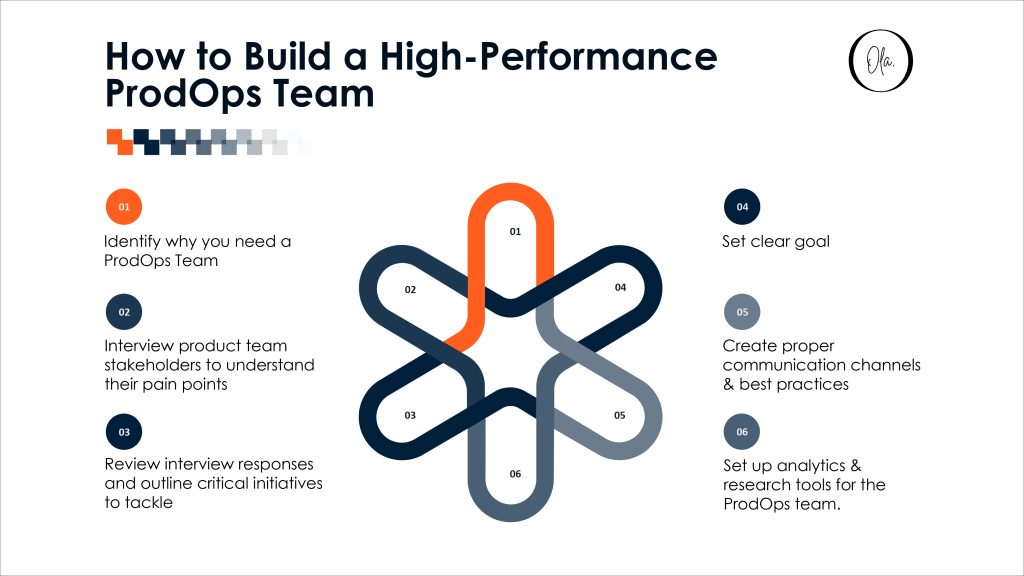
How to Build a High-Performance ProdOps Team
To build a high-performance ProdOps team, companies need to first identify why they need one. Then, they should interview product team stakeholders to understand their pain points and review the interview responses to outline critical initiatives to tackle. Next, they should set clear goals, create proper communication channels and best practices, and set up analytics and research tools for the ProdOps team.

Final Thoughts
In conclusion, ProdOps is a critical function in tech companies that want to remain competitive and innovate at scale. Ignoring this trend can be self-sabotaging. Therefore, companies that want to build customer-centric products should consider hiring a ProdOps team to streamline their product development process.
If you need help building a ProdOps team, you can contact Ola Ajayi via email at Hello@olaajayi.com or visit her website, www.olaajayi.com, to schedule a product consultation session.


[…] the success of a product. This involves communicating with customers, shareholders and their teams. The relationship of the PM with the customers involves understanding their pain points, defining […]